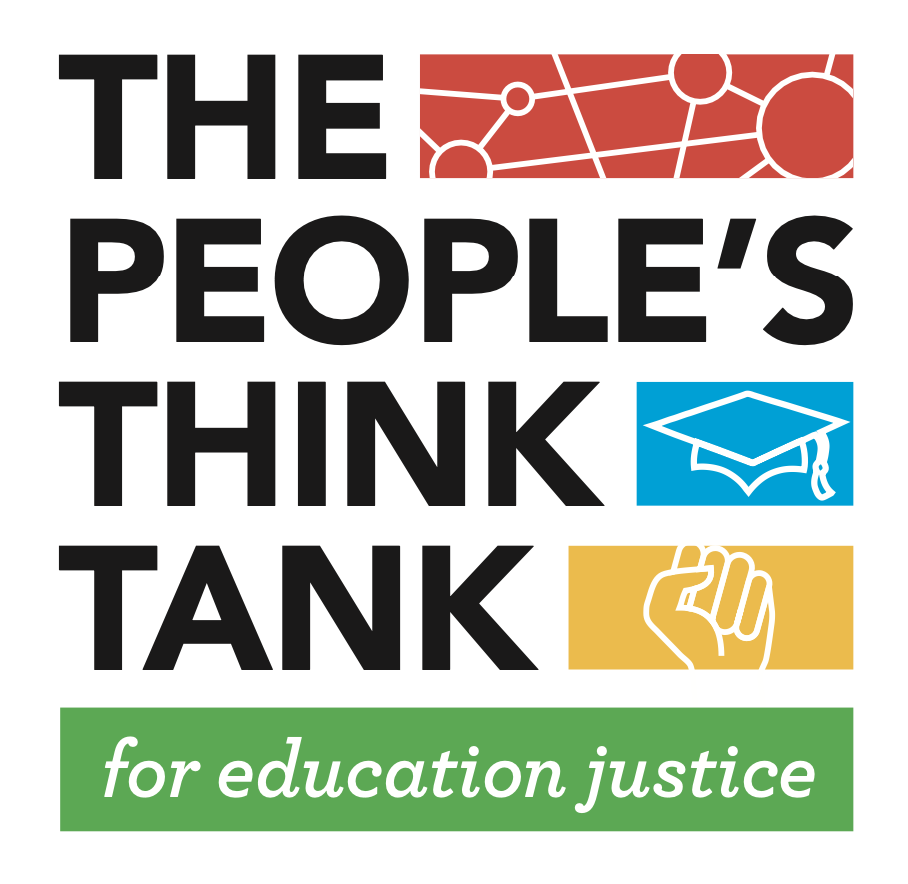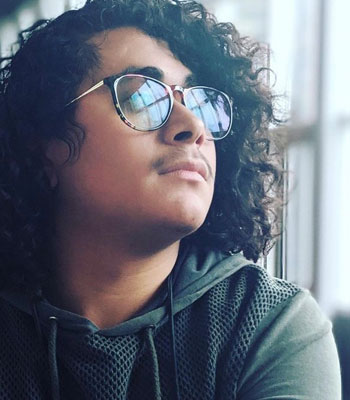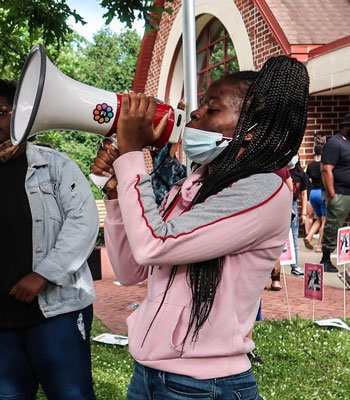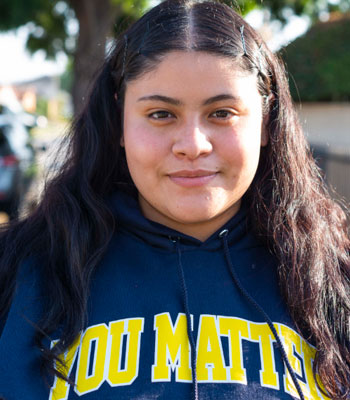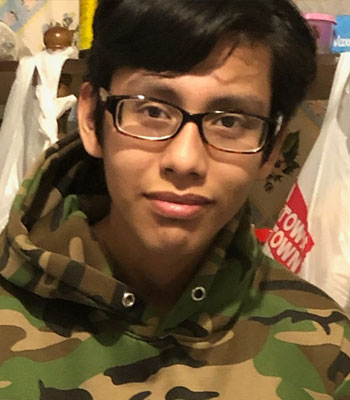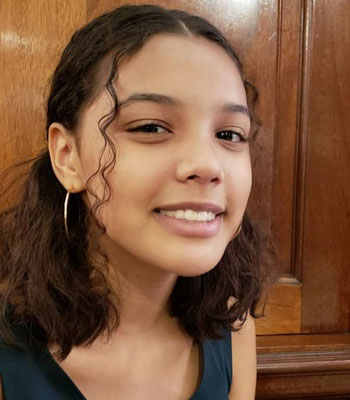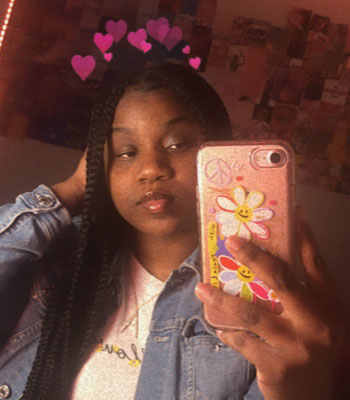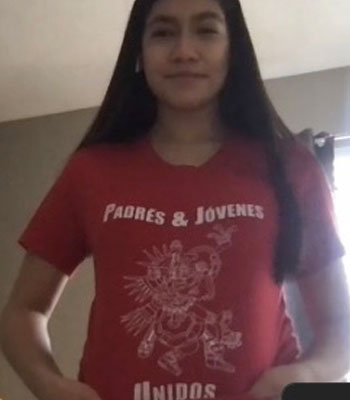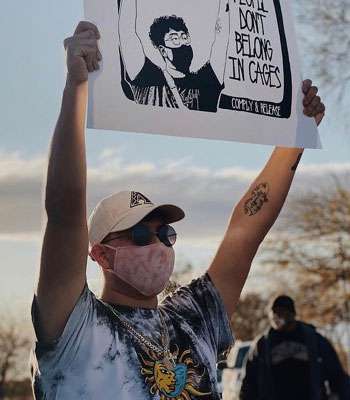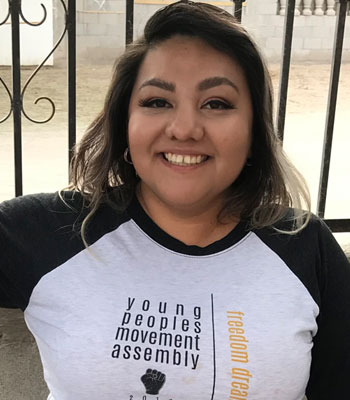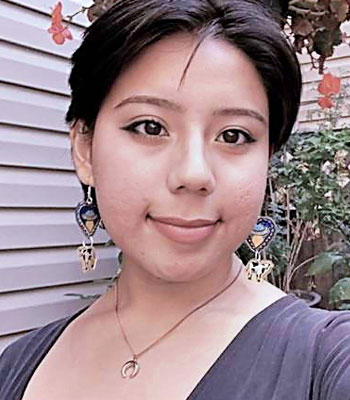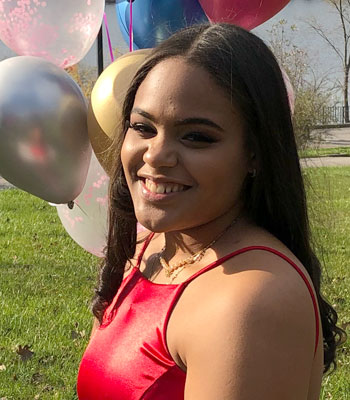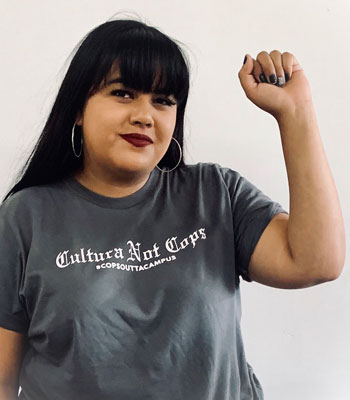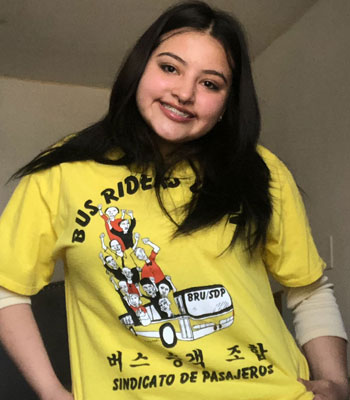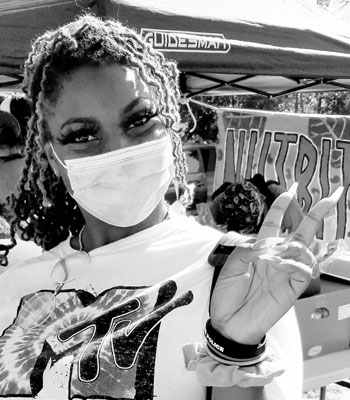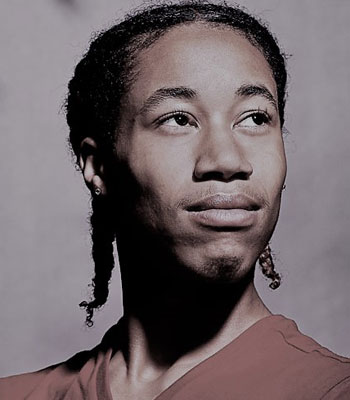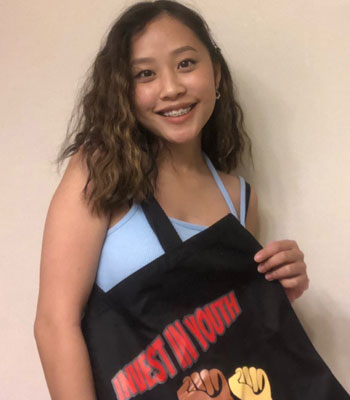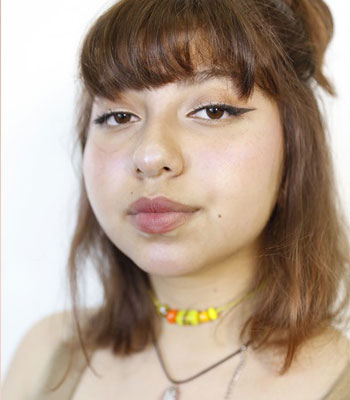A project of the Alliance for Educational Justice and Professor Mark R. Warren from the McCormack Graduate School at the University of Massachusetts Boston.
Click on a person’s photo below to read their essay, or scroll down to browse them all:
Named the Newest Abolitionists in honor and homage of the Student Nonviolent Coordinating Committee (SNCC) in the 1960s, the project is a collection of seventeen essays written by youth organizers leading Police Free Schools campaigns in Chicago, New York, Los Angeles, Madison, Phoenix, Denver, and Philadelphia. Written with the support of UMass Boston graduate students from Professor Mark Warren’s course on Community-Based and Participatory Research, co-led by doctoral student Bianca Ortiz-Wythe, the essays chronicle the personal voices and collective journey of youth organizers in the National Campaign for Police Free Schools, a joint initiative of the Alliance for Educational Justice (AEJ) and the Advancement Project, comprised of 26 organizations leading campaigns in 21 cities. Continue reading the introduction >
Read reflections from the UMass Boston students who worked closely with youth organizers in creating these essays.
From School Suspension to Youth Leadership: The Critical Voice of a Youth Leader Fighting for Students Rights
by Bryan Aju
Bryan shares how she has advocated for policy and systemic changes from speaking to New York City Schools Chancellor Richard Carranza and Mayor Bill de Blasio to leading a student walkout to the Department of Education Building. Through Bryan’s essay, we also learn about the impact of community involvement on her commitment to social justice work and her community.
Read Bryan’s Essay >
I am Here, I am Speaking: Youth Leadership in the No Cops in School Movement
by Ashzianna Alexander
Ashzianna, a student leader with Freedom, Inc., speaks boldly about how police treat students in school and their impact on students’ perceptions of safety in school. Ashzianna narrates her successful activism to get police out of her school, while weaving in her leadership development trajectory and what she has her eye on next.
Read Ashzianna’s Essay >
Setting the Edge
by Brigette Amaya
Brigette’s consciousness led her to her role as a senior organizer at the Labor Community Strategy Center in Los Angeles. At 22 years old, she is working with 3 high schools to build a base of about 15 to 20 students per school, to build up their consciousness, leadership, and organizational skills so they can become organizers like herself.
Read Brigette’s Essay >
A Step in the Right Direction
by Cristian Flores
Cristian draws upon his family role as a Mexican American son and brother in Bushwick, Brooklyn, and combines it with his identities and roles in the world as a youth organizer with Future of Tomorrow, a member of the Urban Youth Collaborative, NYC. Cristian takes pride in his leadership and self-discipline and has been able to use these qualities to fight for social justice for his classmates, friends, and family.
Read Cristian’s Essay >
Alison The Alchemist: Race, Class, and Philadelphia’s Youth Movement for Police Free Schools
by Alison Fortenberry
Alison taps into the revolutionary ethos of a Black Radical Tradition that is ingrained in the air and soil of Philadelphia. She leverages her experience as a biracial youth to reveal her insights on how police officers in schools are positioned as gatekeepers of structural economic and social exclusion and the need to remove them entirely.
Read Alison’s Essay >
Turn off the Toxicity
by Amina Mosley
Poised and powerful, Amina examines the toxic interactions she witnessed as a middle school student between police and students through the lens of being a Black female. Amina declares, “My reason to be on Earth is to fix injustice in my community.”
Read Amina’s Essay >
From Experiencing to Educating to Advocating: Madison’s Fight for Social Justice
by Madison Ordonez
Madison talks about the firsthand experience with police that changed her life and catapulted her into activism. She discusses her work with Padres & Jóvenes Unidos to remove police and school resource officers (SROs) from schools as they funnel students into the school-to-prison and school-to-deportation pipelines.
Read Madison’s Essay >
Adding Music to the Movement
by JoseEduardo Ramos
South Phoenix raised and Mexican identifying, JoseEduardo draws a parallel between the violent policing he experienced firsthand in his neighborhood, to the disciplinary process at school that makes school feel “like a prison.” An artist by expression, JoseEduardo paints a clear picture of systemic racism in schools.
Read Jose’s Essay >
Police Free Schools is What is Going to Transform the Country: A Youth Organizer’s Vision into Creating a New Generation of Abolitionist Society
by Leidy Robledo
Leidy juxtaposes powerfully the disparities between her predominantly Latinx high school in Phoenix and the predominately white and middle class high school she attended her senior year in Colorado. She narrates her growing commitment as a Brown Latinx woman to police-free schools first through her work with Padres & Jóvenes Unidos and then back in her hometown of Phoenix with Puente.
Read Leidy’s Essay >
Community Keeps Us Safe, Not the Police
by Veronica Rodriguez
Veronica describes her experiences with police that led her to engage in the No Cop Academy campaign and defunding Chicago Police. Veronica shows that being part of movements and campaigns helps the community become resilient and grounded and she talks about becoming an organizer who supports the next group of students to grow as leaders.
Read Veronica’s Essay >
Fighting for Police-Free Schools: Giving up is Never an Option!
by Brielka Rodriguez
As a freshman in high school Brielka was already an inspiring youth leader at Make the Road Staten Island. Advocating for police-free schools and re-allocation of NYPD funding to fund more guidance counselors and therapists in high schools, Brielka believes that her dedication can have a positive impact for other youth like her around the world, for people to come together to communicate without violence.
Read Brielka’s Essay >
Don’t Tell Me the School-To-Prison Pipeline Doesn’t Exist: A Youth Leader’s Journey from Speaking Up in Class to Shouting Out in Protest
by Michelle Ruiz
Inspired by a family of men who are committed community leaders, Michelle became a strong, independent Latinx advocate from a young age. A leader in the Arizona Cops Outta Campus movement, she carved her own path, learned to navigate new experiences, and now leads others in the fight to create fair learning opportunities for youth in the Arizona Public School system.
Read Michelle’s Essay >
Made in Boyle Heights
by Alexa Salazar
According to Alexa, Boyle Heights isn’t the LA you see in the movies. It’s full of culture and has a large Mexican population including her own family whose struggles inspire her to speak out against injustice. Alexa is motivated by the work she does with the Labor Community Strategy Center to stop abusive policing practices and has even brought her mom with her to protests.
Read Alexa’s Essay >
Why Didn’t Nobody Just Ask Me How I Feel?
by Lil Tree
Lil Tree is a youth organizer with #CopsOutCPS (Chicago Public Schools) Campaign and BLMchi (Black Lives Matter Chicago) Youth who, through cheerleading at the marches and protests for the police-free schools movement, has found her voice. In spite of the challenges that confront the movement they have found purpose, community, and are building legacy.
Read Lil Tree’s Essay >
From Black Sorrow to Black Joy: Fighting for Police-Free Schools through Joy and Healing
by Jermaine “Jayy Jayy” Wright
Jayy Jayy is an organizer with the Chicago Freedom School, a talented singer and dancer, and a street medic during protests. Jayy Jayy talks about Black joy and using song and dance to uplift others at protests while employing his medical knowledge to help the injured when situations escalate.
Read Jayy Jayy’s Essay >
The Long Fight to Zero: Fighting for Police-Free Schools
by Selena Yang
Selena is an Asian-American student who has been working with Freedom Inc. in the campaign for Police-Free Schools in Madison, WI since she was in middle school. Having seen the racial profiling and biased treatment of her Black and Brown peers at school, Selena has joined other leaders of the Freedom Youth Squad to protest policing in their public schools.
Read Selena’s Essay >
From Police-Free Schools to Free Public Transportation: The Story of a Youth Leader’s Fight for Radical Change
by Emily Zamora
Emily, a first generation El Salvadorian-American from Los Angeles, talks about becoming a leader in the police-free schools campaign, but her vision is even bigger. Along with her colleagues at the Labor Community Strategy Center, she works to advocate radical change on many other issues, including demanding free public transportation and a reimagining of transportation in Los Angeles altogether as a vehicle-free city.
Read Emily’s Essay >
